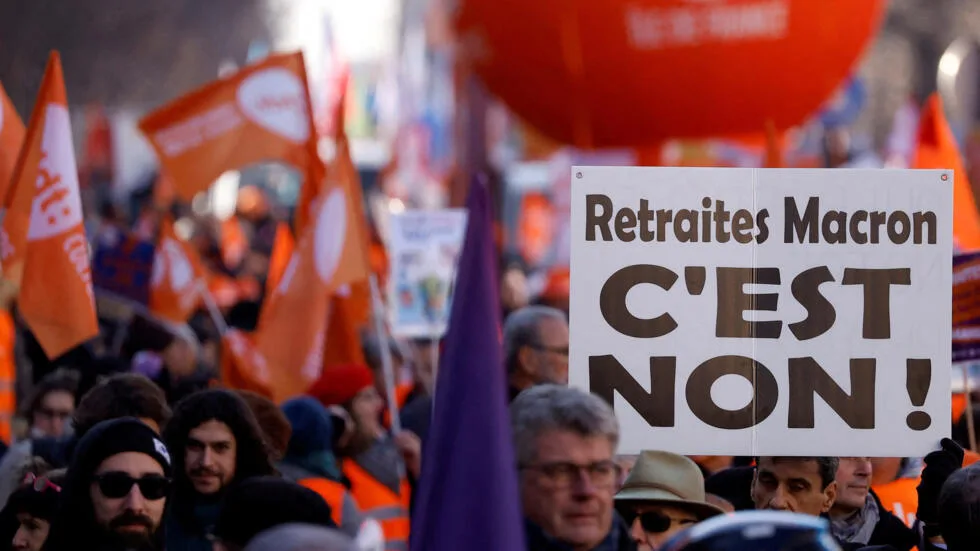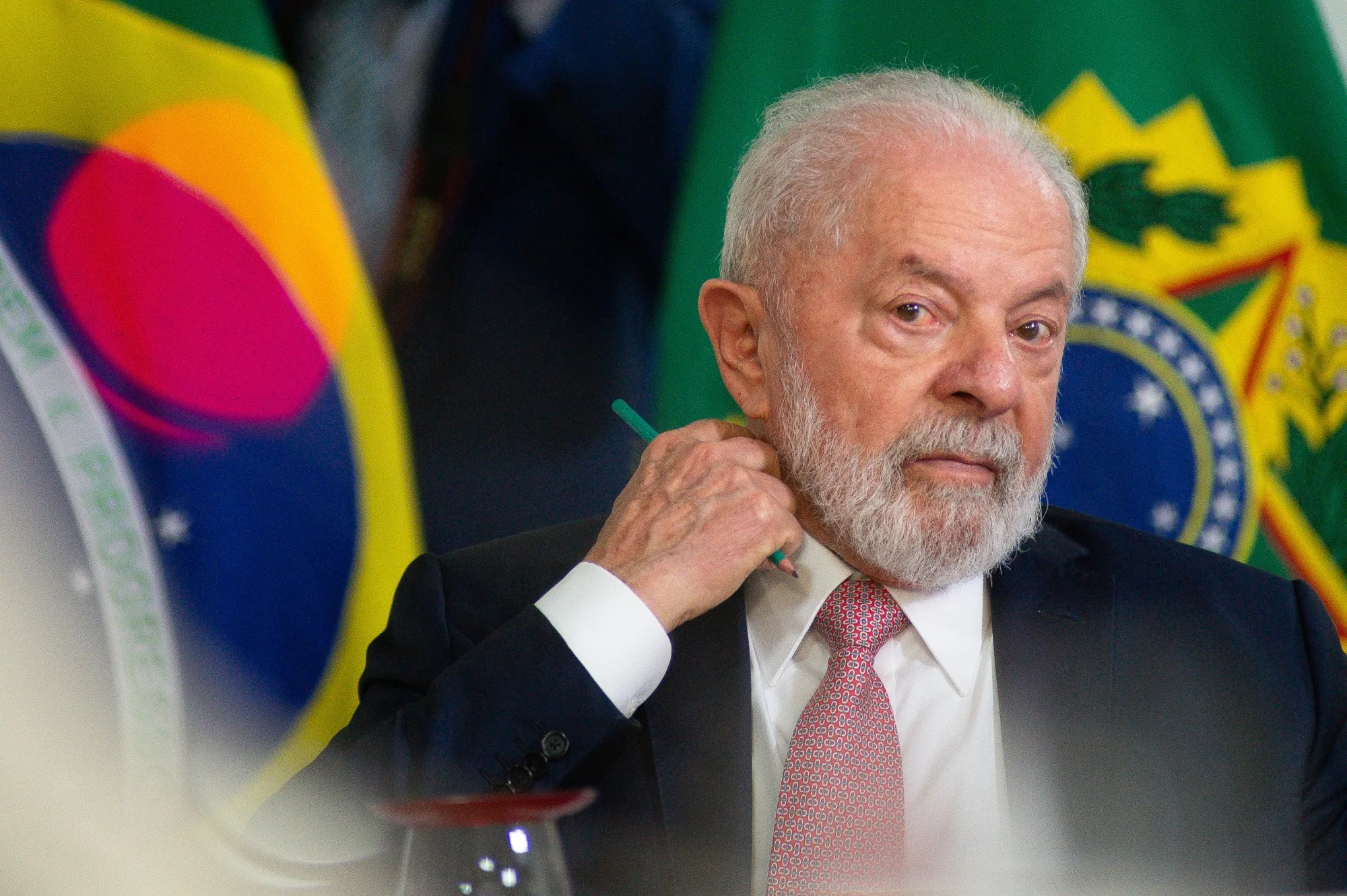French President Emmanuel Macron finds himself increasingly isolated as public anger over his controversial pension reforms continues to simmer. Despite the legislation’s passage, protests and strikes persist, reflecting deep societal divisions and a growing distrust in Macron’s leadership. Critics argue that Macron’s perceived detachment from public concerns and his reliance on executive power have exacerbated the crisis. The situation raises concerns about the long-term stability of Macron’s presidency and his ability to effectively govern a nation grappling with economic anxieties and social unrest.
Key Points
1. Controversial Pension Reforms
President Emmanuel Macron faces mounting pressure following the passage of controversial pension reforms.
2. Public Reaction and Protests
Protests and strikes continue across France, reflecting deep societal divisions and eroding public trust.
3. Macron’s Leadership Style
Macron’s perceived detachment and lack of engagement with public concerns further fuel the crisis.
4. Political and Social Implications
The political landscape remains volatile, with potential implications for Macron’s ability to govern effectively.
5. International Perspective
International observers question the long-term stability of France amidst ongoing social unrest.
The Controversial Pension Reforms
Details of the Reforms
The pension reforms introduced by Macron aim to streamline France’s complex retirement system by raising the retirement age and standardizing benefits across various sectors. These changes are intended to reduce the national deficit and ensure the sustainability of the pension system.
Rationale Behind the Reforms
Macron’s government argues that the reforms are necessary to address the financial challenges posed by an aging population and to maintain the viability of the pension system. However, critics contend that these measures disproportionately affect lower-income workers and fail to address underlying economic inequalities.
Public Reaction and Protests
Widespread Protests and Strikes
The reforms have sparked widespread protests and strikes, with millions taking to the streets in cities across France. The demonstrations reflect a deep-seated frustration with the government’s approach and a perceived disregard for workers’ rights.
Societal Divisions and Public Sentiment
The ongoing protests highlight significant societal divisions, with many citizens feeling increasingly alienated from the political elite. Public sentiment is marked by a growing distrust in Macron’s leadership and skepticism about the government’s ability to address their concerns.
Macron’s Leadership Style
Perceived Detachment
Macron’s perceived detachment from everyday public concerns has been a focal point of criticism. His technocratic approach and reliance on executive authority have been interpreted as a lack of empathy and engagement with the populace.
Use of Executive Power
The use of executive power to push through the pension reforms without a parliamentary vote has further alienated Macron from the public and opposition parties. This move has been seen as an authoritarian tactic, undermining democratic processes and exacerbating public discontent.
Political and Social Implications
Impact on Macron’s Presidency
The backlash against the pension reforms poses a significant challenge to Macron’s presidency. His ability to govern effectively is being called into question, and the social unrest threatens to derail his legislative agenda.
Volatility in the Political Landscape
The political landscape in France remains volatile, with increasing polarization and a fragmented opposition. This instability could lead to further political gridlock and hamper Macron’s efforts to implement other key policies.
International Perspective
Global Observers’ Views
International observers are closely watching the unfolding situation in France. The ongoing social unrest and governmental challenges raise questions about the long-term stability of one of Europe’s major economies.
Implications for France’s Stability
The sustained protests and strikes have broader implications for France’s stability, both domestically and internationally. The ability of the French government to manage these crises will be crucial in maintaining investor confidence and international partnerships.
Broader Trends in Western Democracies
Disconnect Between Leaders and the Public
The crisis in France is part of a broader trend observed in many Western democracies, where there is a growing disconnect between leaders and the public. This disconnect often stems from a perceived lack of responsiveness to citizens’ needs and concerns.
Technocratic Solutions vs. Public Engagement
Macron’s reliance on technocratic solutions, such as the pension reforms, contrasts with the need for genuine public engagement. The failure to involve the public in meaningful dialogue and decision-making processes can lead to increased social unrest and political instability.
Path Forward for Macron and France
Bridging the Divide
To move forward, Macron must bridge the divide between his government and the public. This will involve acknowledging public anxieties, engaging in open dialogue, and showing a willingness to adapt policies in response to citizen feedback.
Addressing Root Causes of Social Discontent
Addressing the root causes of social discontent, such as economic inequality and job insecurity, will be essential. Implementing comprehensive social and economic reforms that prioritize the well-being of all citizens can help restore public trust and stability.
Conclusion
The ongoing crisis in France underscores a broader trend observed in Western democracies – a growing disconnect between the governed and those who govern. Macron’s predicament serves as a cautionary tale for leaders who prioritize technocratic solutions over genuine dialogue and public engagement. The path forward for Macron and France hinges on his ability to bridge this divide, acknowledge public anxieties, and chart a course that addresses the root causes of social discontent. Ensuring a more inclusive and responsive governance approach will be key to restoring public trust and achieving long-term stability.
Frequently Asked Questions (FAQs)
Why are the pension reforms in France controversial?
The pension reforms are controversial because they propose raising the retirement age and standardizing benefits, which many believe disproportionately affect lower-income workers and fail to address economic inequalities.
What has been the public reaction to the pension reforms?
The public reaction has been one of widespread protests and strikes, reflecting deep societal divisions and a growing distrust in Macron’s leadership.
How has Macron’s leadership style contributed to the crisis?
Macron’s perceived detachment and reliance on executive power to push through the reforms without parliamentary approval have exacerbated public discontent and alienated many citizens.
What are the broader implications of this crisis for France?
The crisis raises concerns about the long-term stability of Macron’s presidency, the effectiveness of his governance, and the overall stability of France amidst ongoing social unrest.
How does this situation reflect broader trends in Western democracies?
The situation in France reflects a broader trend of growing disconnect between leaders and the public in Western democracies, often due to a lack of genuine engagement and responsiveness to citizens’ needs.
What steps can Macron take to address the crisis and restore public trust?
Macron can bridge the divide by engaging in open dialogue with the public, acknowledging their concerns, and implementing policies that address the root causes of social discontent, such as economic inequality and job insecurity.



